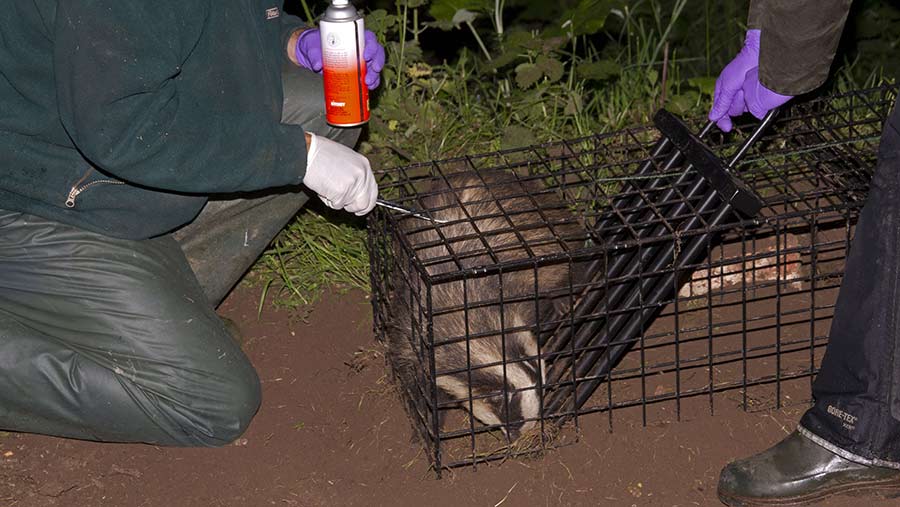Drop ‘wasteful’ badger vaccination scheme – Welsh farmers
 ©FLPA/John Hawkins/Rex Shutterstock
©FLPA/John Hawkins/Rex Shutterstock A “wasteful” vaccination scheme to prevent tuberculosis in badgers should be permanently abandoned, say Welsh farmers.
The Farmers Union of Wales (FUW) made the plea after the Welsh government suggested a suspended badger vaccination pilot in north Pembrokeshire could restart in 2017.
The pilot scheme was suspended a year early in late 2015 due to a global shortage of vaccine – although government scientists believe it has still reduced TB in badgers.
See also: Vaccine shortage suspends badger TB programme
The Animal and Plant Health Agency (APHA) was commissioned to identify the likely effect the non-availability of badger BCG in 2016 would have on the vaccination project in west Wales.
Its report concludes that despite not being able to complete the fifth and final year, four years of badger vaccination would achieve a reduction in prevalence of TB in badgers.
APHA modelling showed vaccinating for four years, missing year five, and returning to vaccinate in year six is not different from vaccinating for five consecutive years.
Welsh deputy farm minister Rebecca Evans said the government would continue to engage with farmers, the veterinary profession and other stakeholders in the intensive action area (IAA) where the pilot is taking place.
“We will also continue to evaluate the effect of all interventions within the IAA, including vaccination, cattle surveillance and controls and the enhanced biosecurity measures.”
But FUW deputy president and north Pembrokeshire farmer Brian Thomas said the vaccination scheme should be abandoned and replaced by badger culling instead.
Ministerial advice in 2012 suggested vaccination could cost Welsh farmers and taxpayers an additional £3.5m compared with a badger cull, he said.
Results after four years appeared to support the original assessment that vaccination would cost millions and save far fewer cattle than badger culling.
Mr Thomas said: “Based on trials in other areas, we could have expected a 30-40% reduction in cattle herd TB incidences by now, had the original plan to cull badgers gone ahead.”
He added: “Instead, matters in the area are no different to other comparable areas where badger vaccination has not taken place.”
A possible return to badger vaccination in 2017 would mean returning to a pointless and costly exercise which had yet to show any positive effects, said Mr Thomas.
“Badger culling as originally planned would already have resulted in significant reductions in TB incidences,” he said.
Mr Thomas said there was also no guarantee the vaccine used on badgers in the pilot area would be available again by 2017.
“There is currently a global shortage of BCG vaccine,” he said.
“Given that one badger dose can vaccinate 20 infants in regions where human TB is a huge problem, such as Africa, it would be immoral to deplete global vaccine stocks by vaccinating badgers.”
